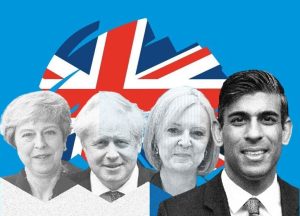By Yusuf Bangura
I stayed up late last night to watch the UK election results. A few issues stood out for me apart from the drubbing that the Tories received in seat and vote shares.
Labour’s victory, with 412 seats—a gain of 210 seats and an overall majority of 170 seats—looks massive, but its vote share of 34% barely increased from the 32% share it received in 2019 when Jeremy Corbyn was in charge of the party. Indeed, Corbyn’s Labour performed much better in the 2017 election when it secured 40% of the votes. Voters have not really warmed up to Labour in the 2024 election despite the landslide. A PR electoral system would have drastically reduced the party’s seat share. Most of the voters that defected from the party in 2019 have not returned.
Labour’s landslide is largely due to Nigel Farage’s nativist, far right Reform Party, whose remarkable performance divided the Conservative vote. The political scientist and psephologist, John Curtis, estimated last night that two thirds of the seats Labour won from the Conservatives can be traced to the Reform Party taking lots of votes from the Conservatives.
The Reform Party received 14% of the vote share but secured only four seats. This large vote share is unprecedented for a far right party in UK politics. The only saving grace from this troubling development is that the first-past-the-post electoral system prevented the Reform Party from translating its impressive vote share into a large number of seats. The Reform Party is yet to reach the heights of Marine Le Pen’s far right National Rally in France. But this election clearly shows that nativist populism is thriving in the UK, as it is in many other European democracies. It should be a worry for immigrants.

14 years of the Conservative Party is over for now in the UK
The Liberal Democrats also benefited immensely from the Reform Party’s strong showing in the election—they took tons of seats from the Conservatives, raising their seat share to 71, up from a miserly eight in the 2019 election, even though their vote share is only 12%—less than the Reform Party’s.
Judging by what the parties say they’ll do, the Liberal Democrats have become more ambitious and progressive on redistributive issues (taxation and public spending) than the Labour Party, which is remarkable. This shift in party postures underscores the point that the current Labour Party is the flip side of the Conservative Party. It may explain why billionaires and pro-business groups and media have warmed up to Labour.
Labour’s landslide can be reversed within one election cycle because of the party’s poor vote share and reliance on the Reform Party to divide the Conservative vote. This is not a 1997 Tony Blair-type landslide, which secured 418 seats (two short of Starmer’s), but 43 percent of the votes. Blair’s landslide was more solid than Starmer’s. That is why it took three electoral cycles (13 years) before the Conservatives were able to overturn it.
The Reform Party’s impressive performance in vote share and massive deflation of the Conservatives’ seats suggest that the Conservatives are likely to radically shift to the extreme right to claw back the votes they have lost to the Reform Party. We should expect a civil war in the party as it tries to redefine itself in a far right direction and prepare to take back power in 2029.
The Labour Party has taken a gamble by shifting to the right on fiscal issues—imposing on itself the Conservative Party’s public spending limits and no tax cuts for the next five years, choosing instead to rely on closing tax loopholes and the Conservative Party’s neoliberal mantra of growing the economy to improve public spending.
If Labour fails to get its neoliberal agenda to deliver for its voters, Farage’s assertion in his election victory speech last night that the Reform Party’s next target is Labour may not be an empty boast, as right wing populism may spread further in UK politics.
So, the next five years may see a fight between the Conservatives and the Reform Party for control of the nativist far right agenda; a fight between Labour and the Liberal Democrats for the votes of progressive voters; and a fight by all the main opposition parties against Labour to make the Labour Party’s massive landslide a single electoral cycle wonder.




























